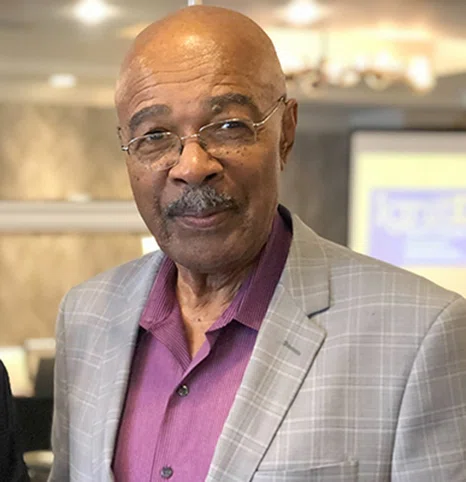
Dr. Rod Paige gave the keynote address at the ACSA/NASS federal advocacy conference in Washington, D.C., Sept. 15-17.
Former education secretary reflects on legacy
September 30, 2019
ACSA and NASS hosted IgnitED, a federal advocacy conference Sept. 15-17 in Washington, D.C., which featured a keynote address from Dr. Rod Paige, former U.S. Secretary of Education under President George W. Bush.
Paige became superintendent of the Houston Independent School District in 1994 and also served as the dean of the College of Education at Texas Southern University. As the first African-American and the first school superintendent to serve as U.S. education secretary, Paige helped create the No Child Left Behind Act.
EdCal sat down with Paige after his IgnitED keynote speech to ask him about his work and his legacy.
Q: In your speech, you said that “educators define the moral character of the nation” — what did you mean by that?
A: There is a feeling for me that the nation’s moral character emanates from where the people’s heart is. It fulfills its own need. The better character a country has the more individuals grow to support that — and it has to emanate from a source. Parents are the best source but schools must support it.
Q: What lessons from your work as a superintendent in Houston did you bring with you to Washington? What lessons did you leave with?
A: The most important lesson in both places is this — relationships are important. They govern output of people working together or not. That understanding is that in many cases they determine success or failure. I had a great relationship with many members of Congress, especially with Senator [Ted] Kennedy — he was a Democrat and I’m a Republican, but we worked together and were great friends, and our relationship helped NCLB get passed.
Q: In the current climate, how well do you think the HISD police department has held up as a strategy for school safety? Is this a model you would like to see adopted in other districts?
A: Security is important — banks have armed security; the chamber of commerce has armed security. Anywhere things have strong value has armed security. Where in the world is there more valuable assets than our school districts? I’m for strong school security which I believe includes armed, trained police officers. They should be there because our most valuable asset is there.
Q: To that end, do you think guns belong in schools?
A: I only want people who are experts in their field to do their job. I want teachers to be armed with pedagogical strategy and I want police armed with guns for security.
Q: Tell me a bit about No Child Left Behind and the focus on accountability. What do you think the legacy of that effort is?
A: NCLB was a historical, appropriate, necessary condition at the time it came about. It was embedded with political issues that didn’t allow it to accomplish what it set out to accomplish. It was a bipartisan act. People need to look back at that act, but it got tangled up in the political forces that control education policy in the U.S. of which serving kids is not it’s primary objective.
Q: The U.S. ranks lower in the world for education than several other industrialized nations. Why do you think that is and what kind of investment would we need to make to get to number one?
A: The investment we need is not solely financial — it’s policy modification. The U.S. is a system of 50 states, not a single system. We need to improve the way our education system is governed. I admire the Chinese educational progress — 60 years ago they had a feudal system, and now they are building aircraft carriers. Because they don’t have 50 states functioning independently and calling it one system, their governance system is simpler. For me, if we lose our global educational leadership position, it will not be because of a lack of education or military spending, it will be because the way we govern our education system is not providing the leadership quality we need for global leadership. The education governance system in the U.S. is too complex to succeed at a level to attain global leadership.
“[NCLB] got tangled up in the political forces that control education policy in the U.S. of which serving kids is not it’s primary objective.”
– Dr. Rod Paige, Former U.S. Secretary of Education
Q: You once battled with the NEA on NCLB. Can you tell me a little more about how you see teachers’ unions and school administration working more collaboratively?
A: Other teachers’ unions I got along with well … this was specific to the NEA. Their primary interest is in the welfare of teachers … not students. The school system’s primary interest is in children’s learning. When those interests are in conflict, guess which side I am on?
Q: If you had a magic wand, what is the one thing you would do to improve education access and opportunity for historically marginalized students?
A: I would try to find a way to have stronger national influence on education policy. We currently have a weak influence based primarily on financial considerations. I would nationalize certain aspects of our education system, but make sure that the system provides proper local control opportunities.


